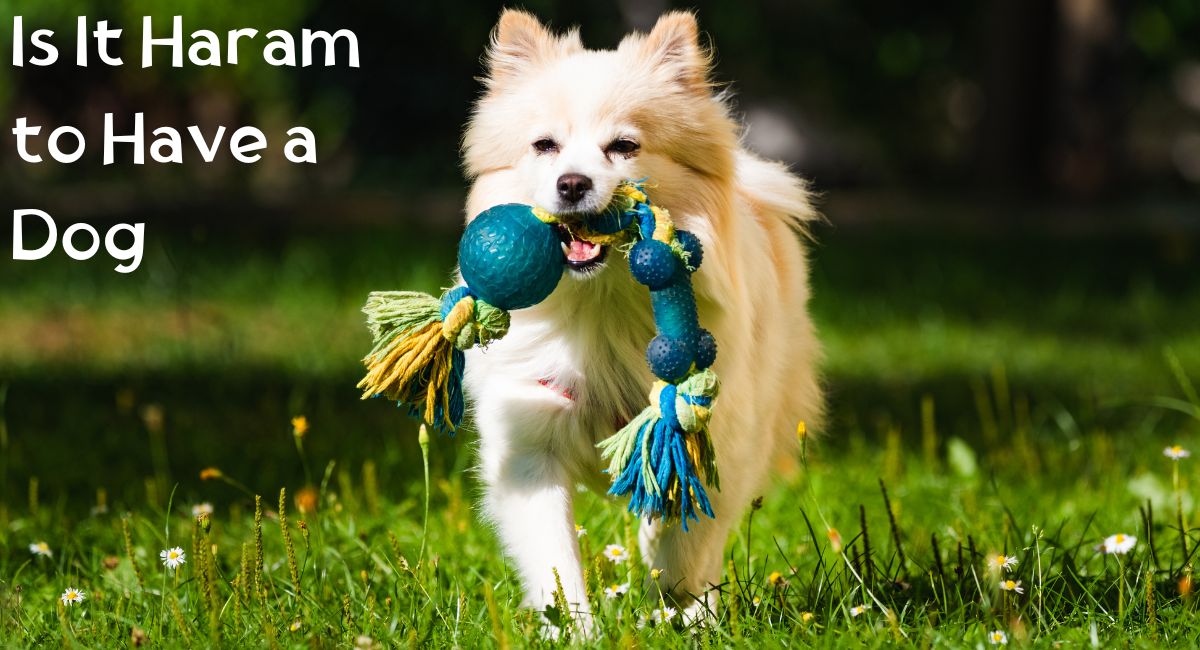The question of whether it is haram (forbidden) to have a dog in Islam is a topic that has sparked considerable debate and discussion within the Muslim community. Dogs hold a special place in the hearts of many people around the world, but in Islamic tradition, their status is a subject of theological interpretation.
To understand the varying perspectives on this matter, it is crucial to delve into the religious texts, historical context, and contemporary viewpoints that shape the perception of dogs in Islam.
This article aims to explore the nuanced perspectives surrounding the permissibility of having a dog in Islamic culture, shedding light on the factors that contribute to the diversity of opinions within the Muslim community.
Key Takeaways
- While the Quran does not explicitly prohibit it, there are hadiths and scholarly opinions that discourage keeping dogs as pets due to hygiene and spiritual reasons.
- Some scholars consider it permissible to keep dogs for specific purposes such as hunting or guarding livestock.
- Islamic scholars have different views on whether dogs are considered impure (najis), and there are varying levels of aversion towards dogs and their bodily excretions.
- Muslims can physically interact with dogs, but precautions are advised due to the perception of dogs being unclean.
- Playing with a dog is not considered forbidden (haram) in Islam.
- Eating dogs is not permissible in Islam, as carnivorous animals with fangs are deemed forbidden.
Is It Haram to Have a Dog
The issue of keeping dogs in Islam is a complex and debated topic. While the Quran does not explicitly forbid it, there are hadiths and scholarly opinions that discourage keeping dogs as pets, citing hygiene and spiritual reasons.
However, keeping dogs for specific purposes such as hunting or guarding livestock and crops is considered permissible by some scholars.
Why Are Dogs Haram
Islamic teachings on dogs, particularly their status as haram (forbidden) in certain contexts, are based on various Hadiths. Below are some specific Hadiths.
These hadiths, and their interpretations, reflect a complex and multifaceted view of dogs in Islam, combining elements of practicality, public health, and compassion. While there are restrictions on keeping dogs as mere pets, there is also a strong emphasis on kindness and care for animals, including dogs.
Hadith on Angels Not Entering a House with a Dog
Hadith: Narrated Abu Talha: The Prophet said, “Angels do not enter a house that has either a dog or a picture in it.”
Sahih al-Bukhari 3322
Interpretation: This hadith suggests that keeping a dog inside the house may decrease divine mercy. However, it is also interpreted as a metaphor to explain how strongly an icon or idol would repel angels, as speaking against icons and idols was a frequent theme in Prophet Muhammad’s teachings, rather than speaking ill of animals.
Hadith on Exceptions for Keeping a Pet Dog
Hadith: Narrated Abu Hurairah: That the Messenger of Allah said: “Whoever acquires a dog – with the exception of a dog to guard livestock, a hunting dog, or a farm dog – each day a Qirat is deducted from his reward.”
Jami` at-Tirmidhi 1490
Interpretation: This hadith indicates that keeping dogs for purposes other than hunting, guarding, or helping (like farming or guiding the blind) can lead to a deduction of good deeds. However, it’s important to note that the original meaning of “keep” in these contexts might refer to “confining” the dog unnecessarily, rather than simply having a dog.
Thoughts on Dogs being Najis
In Islamic teachings, the subject of dogs being considered najis (impure) has been discussed and interpreted in various ways by Islamic scholars. The consensus among the fuqahaa (Islamic jurists) is that it is generally not permitted to keep a dog unless it serves a specific purpose, such as hunting, guarding property, herding, farming, or other uses that align with Shariah principles.
Keeping a dog for other purposes, particularly as a pet for pleasure, is usually discouraged and considered impermissible in many Islamic traditions. This belief is grounded in the teachings of the Prophet Muhammad, who stated that keeping a dog without a valid reason would lead to a deduction of one’s reward or good deeds.
Regarding the concept of najaasah (impurity), there are different opinions among Islamic scholars. The Shaafii and Hanbali scholars generally view the entire dog as najis. This belief is particularly emphasized with regard to the dog’s saliva, which is considered extremely impure.
In contrast, some scholars, particularly within the Hanafi school of thought, believe that while the dog’s saliva is najis, the dog itself is not entirely impure. This distinction is important as it influences the level of aversion Muslims should maintain towards dogs and their bodily excretions.
The widespread view in Islamic jurisprudence is that if a dog’s saliva comes into contact with a vessel or a person’s clothing, it necessitates a thorough cleansing process, traditionally involving washing the affected area seven times, the first time with earth.
It was narrated from Abu Hurairah that: The Messenger of Allah said: “If a dog licks the vessel of anyone of you, let him wash it seven times.”
Sunan Ibn Majah 364
Frequently Asked Questions
1. Can muslims pet dogs?
Muslims can physically interact with dogs, such as petting them. However, they are advised to take precautions due to the Islamic view of dogs being unclean, especially concerning their saliva and fur. Proper cleaning is recommended after such contact.
2. Is it haram to play with a dog?
Playing with a dog is not considered haram. While dogs are viewed as unclean in Islam, there is no prohibition against playing with them. However, Muslims should cleanse any areas of contact before engaging in prayers or other acts of worship.
3. Can we eat dogs in Islam?
In Islam, it is not permissible to eat dogs. The Prophet Muhammad is reported to have said, “Every animal that has fangs is haraam,” and “the Messenger of Allaah forbade the eating of every carnivorous animal that has fangs.” This is reported in a hadeeth narrated by Abu Tha’labah al-Khashani. In the context of the hadith in Islam, “fangs” refer to the long, sharp teeth of carnivorous animals. This includes animals such as lions, tigers, leopards, wolves, and also those who eat meat such as dogs and cats.








